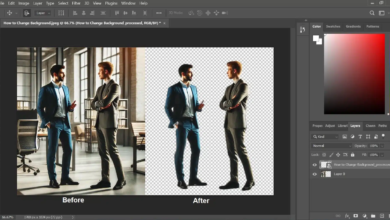What Questions Should You Ask a Personal Injury Lawyer in Lafayette During a Consultation?

Meeting a personal injury lawyer in Lafayette for the first time is important for your case. During the consultation, inquire about their past results, communication style, and case strategy. This will help you determine if they are the right fit for you and how to move forward. For personalized legal support, visit IkerdLaw.com, where your case is the top priority.
Importance of Asking Questions
At the first meeting, you ought to ask a few questions such that the lawyer is the most suitable for the case, and this applies well to auto accidents. It’s an empowered client who knows exactly how to select the right lawyer. Specific questions can clarify for you what a lawyer can do for you as well as determine expectations.
Good communication helps you build trust, so you should ask them about their methods, response times, and case updates to make sure their style suits you. For instance, if you want updates via email, you should tell them early on to avoid confusion. Asking the right questions also helps you discover red flags, like vague answers or unrealistic promises, which can prevent you from problems.
See also: How Much Money Is Lil Durk Worth: Breaking Down Lil Durk’s Net Worth in 2024
Key Questions to Ask a Lawyer
If you are going to visit a personal injury attorney in Lafayette, be sure to ask how many similar cases of personal injury they have handled and what their success rates were. Ensure that you are well aware of their fee structure and the contingency basis on which they operate so that there is no surprise later on. Finally, make sure to ask them how they would keep you informed and involved throughout the process of your personal injury claim.
1. What is your experience with cases like mine?
You will find out how qualified a lawyer might be to help you with your injury by asking the right personal injury law questions. Ask them about similar cases they might have handled concerning car accidents and how successful they were; this will give you information about their competencies in handling the case for you.
2. How do you assess the strengths and weaknesses of my case?
Inquire about a preliminary assessment of your personal injury case at the time of your free consultation. A good personal injury lawyer should tell you the strengths and challenges of your case, such as liability or damages. You should ask how they think the case is viable and how they are going to deal with weaknesses. For example, if they say you lack evidence, ask how they are going to obtain the supporting documents or statements by witnesses. This will make you understand how they strategize.
3. What is your approach to negotiating settlements?
Settlement negotiations play a very significant role in the case of a personal injury. Discuss your attorney’s strategies when dealing with the insurance companies and their track record for securing a large settlement. It is necessary to know how they decide to accept offers or go to court, and how they maximize the compensation for the personal injury using detailed medical records or expert testimonies. Their commitment to your interest is vital to achieving the best outcomes.
4. Will my case go to trial, and do you have trial experience?
Trial readiness is key. Check whether your case is likely to reach the courtroom and assess the readiness of your lawyer. You can ask for his experience regarding the trial, several cases he handled, and what his win ratio is. This lawyer will better deal with unexpected events at the court. Ensure your lawyer is ready for a trial, so you can rely on them if there is a necessity to take it to the courtroom.
5. What is your fee structure and are there any additional costs?
Understanding legal costs is important. Inquire about typical contingency fees for personal injury cases and any upfront charges. Some attorneys might factor in costs like filing or expert witness fees, while others may charge extra. Be aware of potential additional costs and their management. Transparent billing can prevent unexpected expenses.
6. How long will it take to resolve my case?
Ask your lawyer to give you a timeline based on their experience for how long it will take in your case. The cases that are crystal clear on the liability issue, tend to be settled much more quickly than the ones that demand further investigation. Explain any kind of delay, court dates, or negotiations with insurance companies, and understand each step. An experienced attorney can do better with the timelines and give you less stressful situations.
7. How will you communicate updates about my case?
Clear communication builds trust during long legal processes. Ask how often you’ll receive updates and whether they prefer phone or email. Confirm if you’ll communicate directly with your attorney or a paralegal. Some firms provide regular updates, while others only reach out for major news. Ensure their communication style aligns with your expectations.
8. What is your strategy for dealing with insurance companies?
Insurance companies generally want to pay as little as possible. You need to know your attorney’s approach to negotiation. Ask him how many times he has dealt with adjusters and how he would handle a dispute. Does he rely on medical records or expert testimony to overcome a lowball offer? A good attorney will get you fair treatment and the compensation you deserve.
9. Who will handle my case, and what is your current caseload?
Request if the attorney will personally represent your case, or if a legal group will handle your case. Some firms do not detail how many paralegals and assistants will be employed on basic tasks. It would also be critical to know how their workload currently is to ensure that your case receives adequate attention. Confidence also comes into play so that the team can successfully manage your case for peace of mind.
10. Can you provide references or past client testimonials?
A lawyer’s history reflects their effectiveness. Request references from past clients with similar cases and check online reviews. Positive feedback on communication and successful outcomes can reassure you. These reviews help you assess their credibility and client satisfaction.
What to Expect During Consultation
Meeting with a Lafayette personal injury attorney is the first, crucial step in your case. In a free consultation, you can share your story and decide whether this attorney fits your needs. Be prepared to discuss the details of the accident, the medical expenses, lost wages, and how that injury has affected your life. The attorney will explain your legal options-which may include settlement, trial, or mediation-and lay down the pros and cons of each.
Settlements usually take less time but may mean less compensation. They will help you collect evidence of negligence and explain the law process, which can be very long. You will go through evidence such as photographs and medical reports, and the lawyer might advise you on more documents to include in your case. They will also help in dealing with problems, such as missing witnesses, by advising on expert testimony or other evidence to make your case stronger.
Essential Questions to Ensure a Productive Consultation with a Lafayette Personal Injury Lawyer
Choosing the right personal injury attorney in Lafayette will be important to you. The good attorney would be frank, tell you what he or she can do to you, and explain how they are going to benefit you. Strong mutual trust coupled with a great relationship is, therefore, bred by good communication. Observe their professionalism when responding during your appointment. A person who listens to your concerns might be a valuable guide, so ask about what is important to you. Starting your search early will enhance your confidence and peace of mind.




